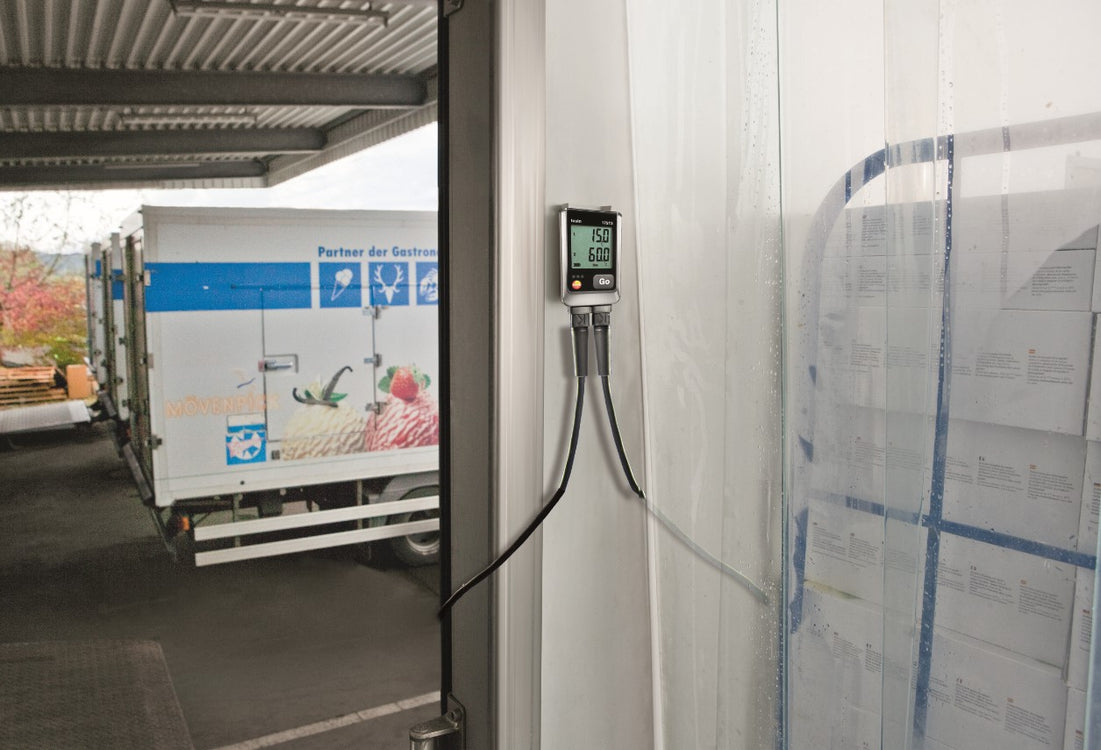
When it comes to pharmaceutical goods transport, the importance of temperature control cannot be overstated. Refrigerated products, such as vaccines, need to stay in the optimal temperature range between 2 and 8 degrees Celsius. If they are exposed to high temperatures and/or humidity, the active ingredients or chemical composition of the pharmaceutical itself can become compromised.
These upper and lower limit values are not a guideline or a choice. Government agencies are incredibly strict when it comes to enforcing this law. They have little hesitation in disposing of batches of medication if they are even slightly suspicious about whether they have been exposed to too high or too low temperatures.
Whether violations are intentional or not, they result in damage to your companies reputation in the pharmaceutical industry, as well as financial losses. The pharmaceutical supply chain has to keep patient safety a priority, and temperature is an essential factor that determines the quality of goods, and in turn, the patient care. Thermometers have long been the go-to tool for measuring temperature, however, they simply do not meet the highly specific and significant needs of pharmaceutical goods transport.
"Thermometers are insufficient at providing continuous, accurate temperature measurements needed for pharmaceutical transport."
So what are all the reasons that a thermometer fails in the pharmaceutical goods cold chain?
Where thermometers fall short in cold chain pharmaceutical goods transport
In the past, cold chain logistics relied on manual reading and measurement logging. While there is a use for traditional thermometers being used to gauge indoor and outdoor temperatures, they are ultimately insufficient in providing the continuous, accurate temperature measurements required for pharmaceutical transport.
Periodic manual temperature measurement has been deemed insufficient and inadequate for the transport of drugs (vaccines in particular) by the U.S, Department of Commerce National Institute of Standards and Technology (NIST). The reason is partially due to pharmaceutical goods being affected by more than just the ambient temperature.
Another issue with manual thermometers is that they can also give inaccurate temperature readings when refrigerated. This is because there is no single point measurement for refrigerator temperature due to various environmental and cargo temperature variations, reports NIST. Dependant on where the thermometer is placed within the refrigerator transportation unit can lead to drastic differences in ambient temperature readings.
Finally, drug manufacturers are discovering that thermometers alone are not enough to ensure that their products are delivered for sale at the correct temperature. Once their products have left a facility and moved throughout the supply chain, they are unable to maintain quality control up to the point of contact. They, therefore, have no way of knowing if the drugs and vaccines are refrigerated properly beyond trusting the manual recordings of temperature.
Overall, cold chain monitoring without continuous temperature and humidity measuring systems increase the risk of undiscovered violations of valuable temperature thresholds. Manual thermometers are incapable of recording changes in temperatures due to various factors such as power outages, defrost cycle patterns or frequent periods of doors being open. Temperatures may be recorded as well within the acceptable limits, but the pharmaceutical goods could already have been compromised between check-in periods.
This increases the chance that patients will receive ineffective doses, and given the serious nature of patient safety, the repercussions could be devastating. Because thermometers cannot track the small changes in temperature during transport, they can seriously compromise the effectiveness of important cargo.
Achieve cold chain security with temperature data loggers
There's no doubt about it, autonomous data collection is the future for pharmaceutical cold chain logistics. Data loggers are capable of continuously reporting on temperature and humidity. This makes real-time monitoring of sensitive products possible. Their easy start and stop buttons and unlimited operating times make data loggers one of the easiest data recording operations.
By investing in continuous temperature monitoring with data loggers, you are investing in improving ongoing quality and safety. You can rely on the temperature sensor to constantly monitor changes. This is then compiled into a PDF measurement data, configuration data and instruction manual. This removes all the guesswork to determine whether temperatures stayed correct during a trip. With only a glance, operators can tell whether the configured limit values have been maintained during transportation.
Furthermore, PDF reporting provides time-stamps for detecting issues. This allows operators to make immediate changes. Maybe a refrigeration unit isn't working efficiently, or temperatures inexplicably climb during parts of a day. Operators can pinpoint the issue and resolve it with the proper repairs. There are also some cases where human error can be blamed. Instances such as leaving cargo exposed to the elements or excessively opening doors can harm pharmaceuticals. If these behaviours are tracked and addressed, relevant training can be implemented to prevent them in the future.
Reliable record storage of temperature data simplifies staying compliant even further. Data loggers offered by Testo New Zealand can be made in compliance with GxP, 21 CFR Part II and HACCP to ensure quality whilst preventing financial losses from non-compliance penalties.
Finally, all this critical data is easily accessible to operators. This gives them control over their supply chain management. Manufacturers can rest assured knowing that their products are being transported properly while reducing waste and improving patient safety.
Real-time monitoring of assets using data loggers contributes to creating an efficient supply chain for the pharmaceutical industry. They are easy to install, and are vital for identifying any issues before they become larger and more costly.
"Real-time monitoring helps create an efficient supply chain for the pharmaceutical industry."
The commitment to improving cold chain logistics
The global biopharmaceutical industry spent $15.7 billion to ship temperature-controlled products in 2019, reported Pharmaceutical Commerce. This is a significant increase from 2018's predicted figure of $15.0 billion and shows the increased need for cold chain logistics technologies like data loggers.
Testo New Zealand is committed to improving the entire supply chain for sensitive goods, such as food or pharmaceuticals, to ensure they are delivered safely. Temperature plays a significant role in the safe transportation of pharmaceutical goods. Our advanced data loggers address the inconsistencies traditional thermometers have in tracking temperature to provide the best value to customers.
The pharmaceutical cold chain logistics industry is booming and will not slow down any time soon. For more information about how Testo New Zealand can improve your cold chain, get in contact with our team today!
